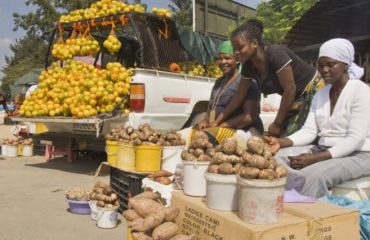By Samuel
The Africa Export-Import Bank (Afreximbank) has approved a $400 million fund for the Export Trading Group (ETG).
The loan is a revolving global credit facility and would span three years, the bank stated.
A revolving credit facility is a credit system that provides loans to borrowers with flexible repayment and re-borrowing terms.
Managing Director of Afreximbank’s Intra-African Trade Initiative, Kanayo Awani, disclosed this in a statement issued on Wednesday.
According to the MD, the credit facility would bolster food security across Nigeria, and the African continent at large.
It would strengthen agricultural networks in the continent, he added.
Awani noted that the agreement was imperative to aid ETG’s role of food supply within the agricultural value chain, by connecting the farmers to markets.
He added that aiding the role of ETG in Africa, a continent he described as “continent with tremendous but yet unrealised potential”, was necessary.
The global COVID-19 pandemic, Awani pointed, had also aggravated the problems experienced within the value chain.
“Moreover, the Food and Agriculture Organisation (FAO) estimates that up to 50 percent of Africa’s agricultural production is lost every year from farm-to-market.
“This is due to problems ranging from sub-optimal use of inputs to improper post-harvest storage, processing and transportation facilities,” he said.
Awani harped on the need to expand the ETG’s role- a need that also made the loan facilitation pertinent.
The expansion, he noted, would also reduce post-harvest losses, while repositioning African farmers in the global market.
It will also educate the farmers on better practices, he added.
“It will also support the vital flow of food supplies across the continent amid the disruption triggered by the COVID-19 pandemic.
“ETG is focused on uplifting farming communities by connecting smallholder farmers with international markets, expanding mechanisation and processing capabilities.
“It will also increase knowledge around quality inputs, irrigation, post-harvest techniques and yield-enhancing practices,” Awani said.





